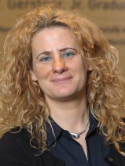| Abstract: |
Despite the global unrelated donor (URD) registry size, the degree to which URD availability is a transplant barrier is not established. We evaluated the availability of 3,843 URDs requested for 455 diverse adult patients (predominantly with acute leukemia). URDs for non-Europeans were more likely to be domestic and had markedly lower Donor Readiness scores. Of URDs requested for confirmatory HLA-typing (CT) alone (ie, without simultaneous workup), 1,894 of 3,529 (54%) were available. Availability of domestic URDs was 45%. Donor Readiness score was highly predictive of CT availability. More non-European patients (n = 120) than Europeans (n = 335) had >10 URDs requested and <5 available. Of workup requests (after CT or CT-workup), <70% (604/889 [68%]) were available. More non-Europeans had <2 URDs available. URD availability for CT was markedly worse for non-Europeans, with availabilities for African, non-Black Hispanic, and Asian patients being 150/458 (33%), 120/258 (47%), and 119/270 (44%), respectively, with further decrements in URD workup availability. Our data suggest the functional size of the URD pool is much smaller than appreciated, mandating major operational changes for transplant centers and donor registries. Likelihood of donor availability should have a high priority in donor selection. Considering patient ancestry and URD Donor Readiness scores, centers should pursue, and registries permit, simultaneous pursuit of many URDs and abandon futile searches. Patients should be informed about their likelihood of donor availability and alternative options. Finally, although registries should address high URD attrition and speed procurement, use of all HLA-disparate graft types is needed to facilitate timely transplant for all. © 2024 by The American Society of Hematology. |












